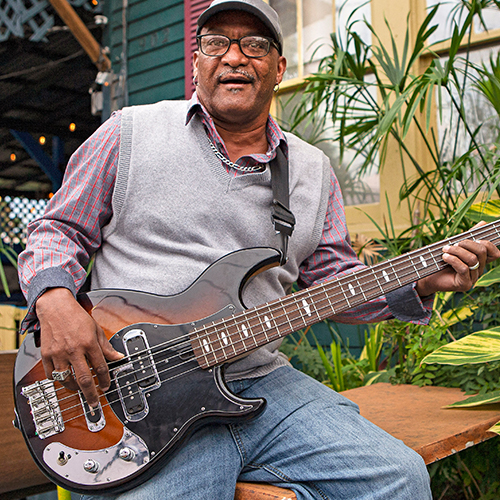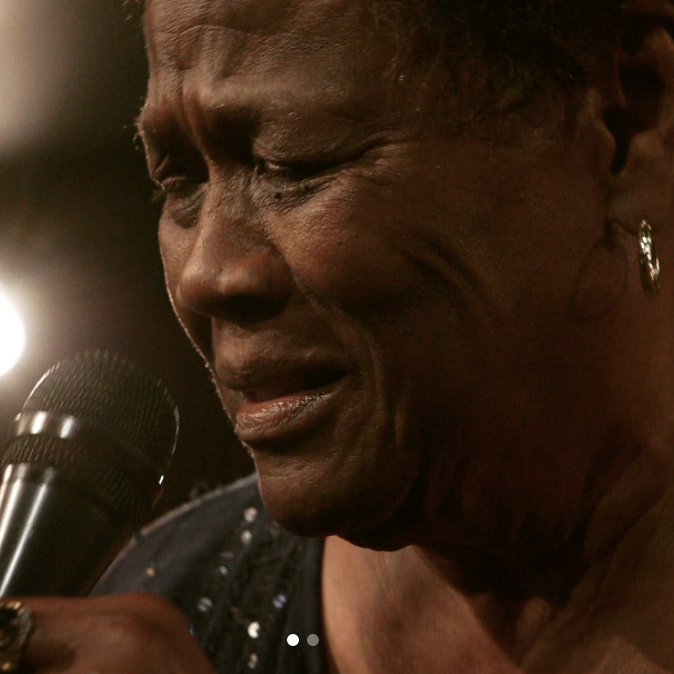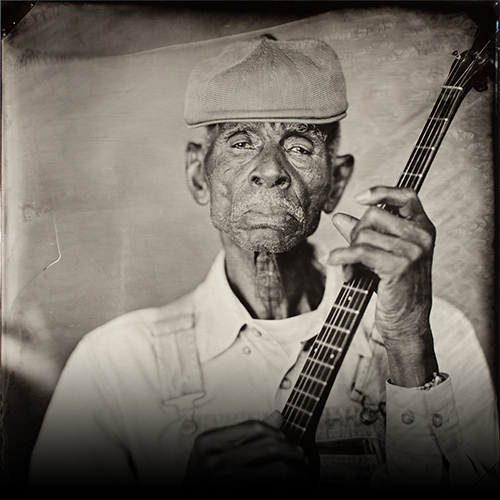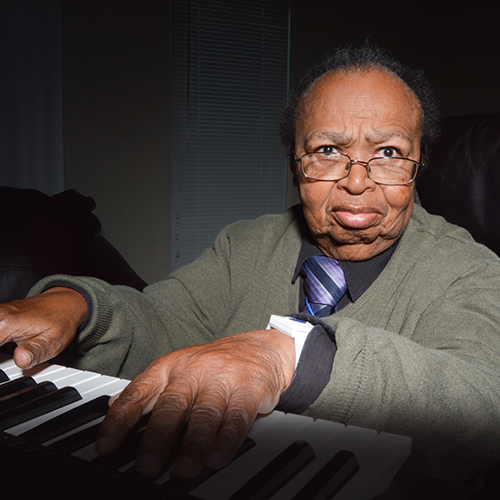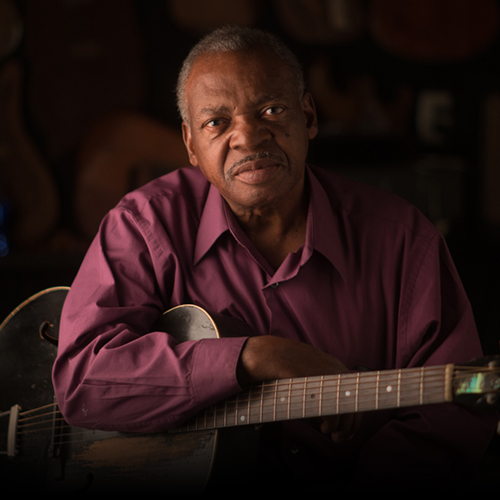Biography
After playing professionally for more than 55 years, Ironing Board Sam has amassed a staggering repertoire of both originals and classic blues and R&B songs. A truly gifted and engaging performer, Sam’s powerful, soulful voice and remarkable piano prowess remain undiminished.
How We Helped:
Ironing Board Sam joined the Music Maker family in 2010, and since then has received financial help with medical care, vehicle repairs, and relocating to Chapel Hill, North Carolina. Music Maker provided Sam with a new “ironing board”/keyboard, recorded his album, and booked him for the legendary Blues Cruise, the New Orleans Jazz and Heritage Festival, and gigs throughout North Carolina.
In his heyday, Ironing Board Sam was nearly a total obscurity — working primarily in local scenes around the South with only minimal touring, and recording sporadic singles, all for different labels and none approaching hitdom. But those who got to see him, whether in person or on the R&B television program Night Train, remember him well, for Sam could put on a show.
Born Samuel Moore in Rock Hill, South Carolina, in 1939, he began gigging locally on piano and organ at age 14. By the late ’50s he was on the scene in Miami where, lacking a stand for his electric organ, he mounted it on an ironing board. When he moved to Memphis around 1959, his instrument earned Sammy Moore the new moniker Ironing Board Sam, which he resented (whoever gave him that handle proved prescient, however, as the ultra-hot Sam & Dave soon emerged from Memphis, and the former’s surname was Moore; the who’s-who confusion caused by having two Sam Moores in the same music scene would likely have killed Ironing Board Sam’s already-meager career). By the mid ’60s, Sam was based in Nashville — I picture him down on Jefferson Street showing the young, unknown Jimi Hendrix what showmanship was all about.
Because make no mistake, Sam was already a showman — a slightly mellower Little Richard crossed with a slightly saner Screaming Jay Hawkins and a slightly less churchy Ray Charles — as he moved back to Memphis, then to Chicago, Iowa, Los Angeles, Memphis once more. Somewhere in there — history is woefully imprecise — Sam invented his “button board,” which was actually two keyboards. The main one looked like a Hammond B3 but underneath the keys were guitar strings that were fed through a wah-wah pedal and into an amp. Not only could he make it sound something like a B3, he could also make it sound like a piano, a guitar and all three combined. The lower keyboard, which provided bass, consisted of 60 upholstery tacks connected to electronic sensors. Under his coat sleeve, a wire ran down Sam’s arm to his fingers, conducting electricity to the buttons. It was just one of his many inventions — among other he claims to have built a machine with just five moving parts that could provide electricity to an entire apartment complex at no cost — and Sam never had to worry about anyone else playing his ax; nobody else could figure out how it worked.
In the mid ’70s Sam moved to New Orleans, where he was in residence, billed as “The Eighth Wonder of the World” and backed only by drummer Kerry Brown, at Mason’s VIP Lounge on South Clairborne. There, he’d lift his keyboard off its stand and strap it onto his shoulder as he strolled the club and sidewalk playing his late-night, lowdown blues; Brown played with the tips of his drumsticks on fire, and sometimes ended the set by burning the whole damn kit. When Sam got booked into Jazzfest in 1979, he did his entire show underwater in a 1500-gallon aquarium. Later, he busked on the streets backed by a wind-up monkey toy that kept time, as it were, on drums. When Sam concluded from the disco trend that audiences would now only listen to jukeboxes or deejays, he built an eight-foot high wooden jukebox, put himself and his keyboard inside it, and played that on French Quarter sidewalks; it had a coin slot that you fed money if you wanted him to take your request. In 1991, playing a vintage Wurlitzer piano, he cut demos for a local Orleans Records album called Human Touch; though unavailable on eMusic, it was finally released in 1996.
And then Sam’s button keyboard was vanquished. Before going on the road, he gave it to an electronics tech to have it transistorized and the guy found the whole project so ludicrous he up and threw it out. Sam claims he’s simply never had time to build a new one. Some of his aura consequently faded in New Orleans and he’d been retired for some time when Katrina savaged the city in 2005. He moved back to his South Carolina birthplace and began gigging again; eventually rediscovered by the Music Maker Relief Foundation, a charitable group that helps get Southern roots musicians back on their feet, he recorded and released the solo piano album Going Up. [His other album,] Ninth Wonder is the Ironing Board Sam album you simply can’t miss, because it was originally recorded in the late ’60s/early ’70s as part of a promo packet to get Sam gigs; only 100 were pressed and sent to agencies, and none were released.
–John Morthland for eMusic.com
